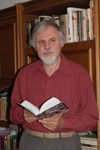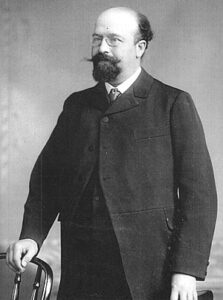By Alex Gordon


HAIFA, Israel — In 1935, future French Prime Minister Léon Blum wrote Memoirs of the Dreyfus Affair, in which he condemned French Jews for their attitude toward the case:
“The Jews accepted the Dreyfus accusation as final and just. They did not discuss the Case among themselves: they did not raise the question, but rather fled from it. A great misfortune happened to the Jews. They accepted it without saying a word and expecting that time and silence would level the impact of events. […] The general feeling could be expressed in the formula: “This is something in which the Jews should not interfere.” […] They showed patriotism, touching patriotism, respect for the army, trust in its heads. […] There was a selfish and timid precaution, which could be characterized with even harsher words. The Jews did not want to believe that they had to defend Dreyfus because he was a Jew. They did not want to be attributed attitudes on the basis of race or because of solidarity. Most of all, they did not want to defend another Jew, lest they supply fuel for the anti-Semitic passions that were running rampant with great force.” Blum ignores the activities of one of the first Jewish defenders of Dreyfus, Bernard Lazare.
Bernard Lazare (1865 – 1903), French publicist and social activist, was born into a family of a wealthy Jewish merchant who observed Jewish traditions. After graduating from lycée, he studied from 1886 at the Archives Institute in Paris. By the mid-1890s he had become known as a prose-symbolist. At the beginning of his literary career he spoke in defense of French Jews against the attacks of antisemites. Socialist in his views, Lazare, fascinated by Jewish history, interpreted the social views of the prophets as an expression of the aspirations of working people (Social Ideals of the Jewish People, 1893). Later he proved that the ideals of the Jewish people correspond to the aspirations of the advanced part of modern humanity, including the proletariat.
In his book Antisemitism, Its History and Causes (1894), which was a response to Édouard Drumont’s antisemitic pamphlet Jewish France (1886), which received a wide response and was translated into many languages, he outlined his views on antisemitism. He saw the main cause of hostility toward Jews as the sense of disgust toward foreigners inherent in European nations and the isolation of Jews. He defined Christian, economic and ethnic antisemitism as the three stages of Judophobia, dictated by the aversion to foreign nations inherent in human nature, and believed that only assimilation and the transition of Jews to productive labor will destroy antisemitism.
Lazare condemned the Jews’ desire to be “a revolutionary in a foreign society rather than in his own.” He believed that the Jew-“parvenu,” “upstart is a dangerous combination. Lazare concluded about the capitalist-socialist duality of Jews: “We can say that Jews are at two poles of modern society. They were among the founders of industrial and financial capitalism and protested with the greatest fervor against this capital. To Rothschild correspond Marx and Lassalle; the struggle for money is the struggle against money, and the cosmopolitanism of the stockbroker becomes proletarian and revolutionary internationalism.” A bipolar, anti-capitalist and anti-socialist antisemitism emerged in response to the discovery of Jewish bipolarity.
Lazare became a leading figure in the “Dreyfusarian” camp and arrived at a national solution to the Jewish question. He participated in the Second Zionist Congress (1898) and published the pamphlet Jewish Nationalism (1898). Lazare’s article The Social Concept of Judaism and the Jewish People (1899) reveals the depth of his national consciousness and his increased interest in the sources of Judaism, especially the Talmud. Long before the famous writers and politicians Emile Zola, Jean Jaurès, and Georges Clemenceau spoke out in defense of Dreyfus, Lazare rushed into action.
At the beginning of the Dreyfus affair, Lazare wrote in a letter to the Minister of Justice, “Let it be said that the first to speak, the first to rise to the defense of the martyred Jew, was a Jew – a Jew who suffered in his own flesh through the blood and suffering of this innocent man, a Jew who knew to what a destitute, unhappy nation of pariahs he belonged and who from this understanding derived the inspiration to fight for justice and truth.”
In late 1896, Lazare published in Brussels the pamphlet Legal Error: the truth about the Dreyfus affair. In it, he emphasized the antisemitic nature of the case: “He was arrested because he was a Jew, and tried because he was a Jew, and sentenced because he was a Jew, and the voices of truth and justice were silenced because he was a Jew.”
For Lazare, Dreyfus is the embodiment of martyrdom: “He embodied not only the centuries of old suffering of the martyr nation, but also its present agony. […]. Through him I see Jews languishing in Russian prisons. […] Romanian Jews are denied human rights. Galician Jews are starved by financial corporations and ruined by peasants turned into fanatics by priests. […] Algerian Jews are beaten and robbed; unfortunate immigrants starve to death in the ghettos of New York and London; despair directs them to seek refuge in the far corners of the world, where they will finally find that justice which humanity most requires.” Many French Jews felt that Lazar was compromising them. He was a loner and said, “I have become a pariah.”
At the Second Zionist Congress in Basel, Max Nordau described the reaction of French Jews to the Dreyfus affair this way, “Christians have fulfilled this duty of honor. It is to the credit of Christians that they have acted as fighters for truth. The Jews bear the shame that they remained idle spectators while strangers sacrificed themselves in the struggle for the most sacred human right – justice. To ease our consciences, I can say that a few Jews did their duty, [among them] the good, brave Bernard Lazare, our brave ally.”
*
Alex Gordon is professor emeritus of physics at the University of Haifa and at Oranim, the academic college of education, and the author of 10 books.